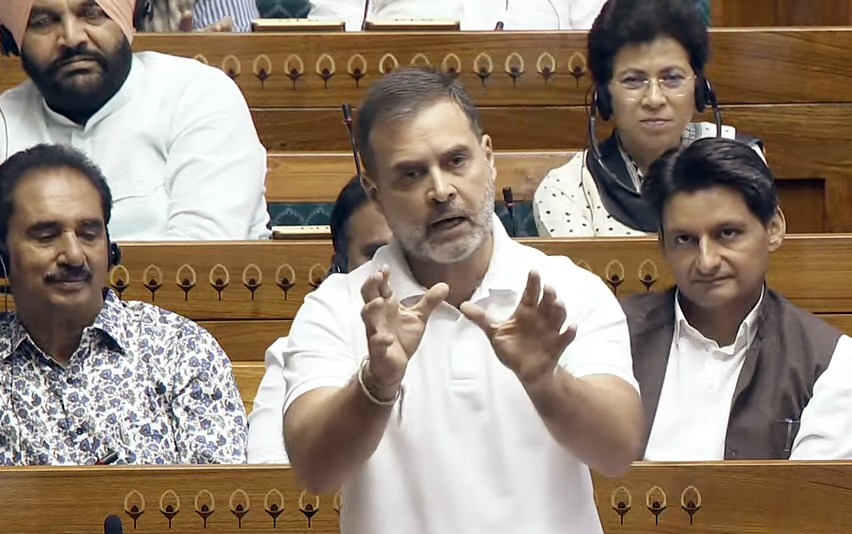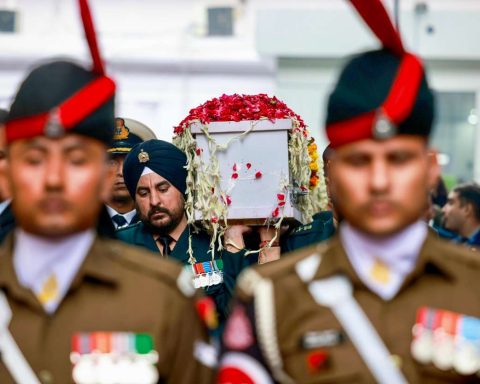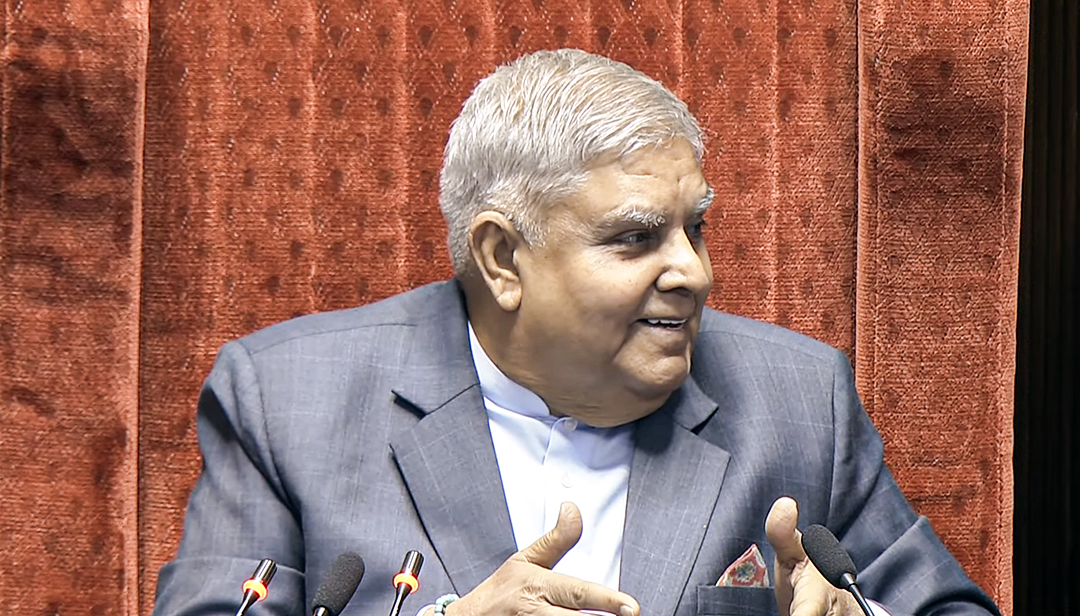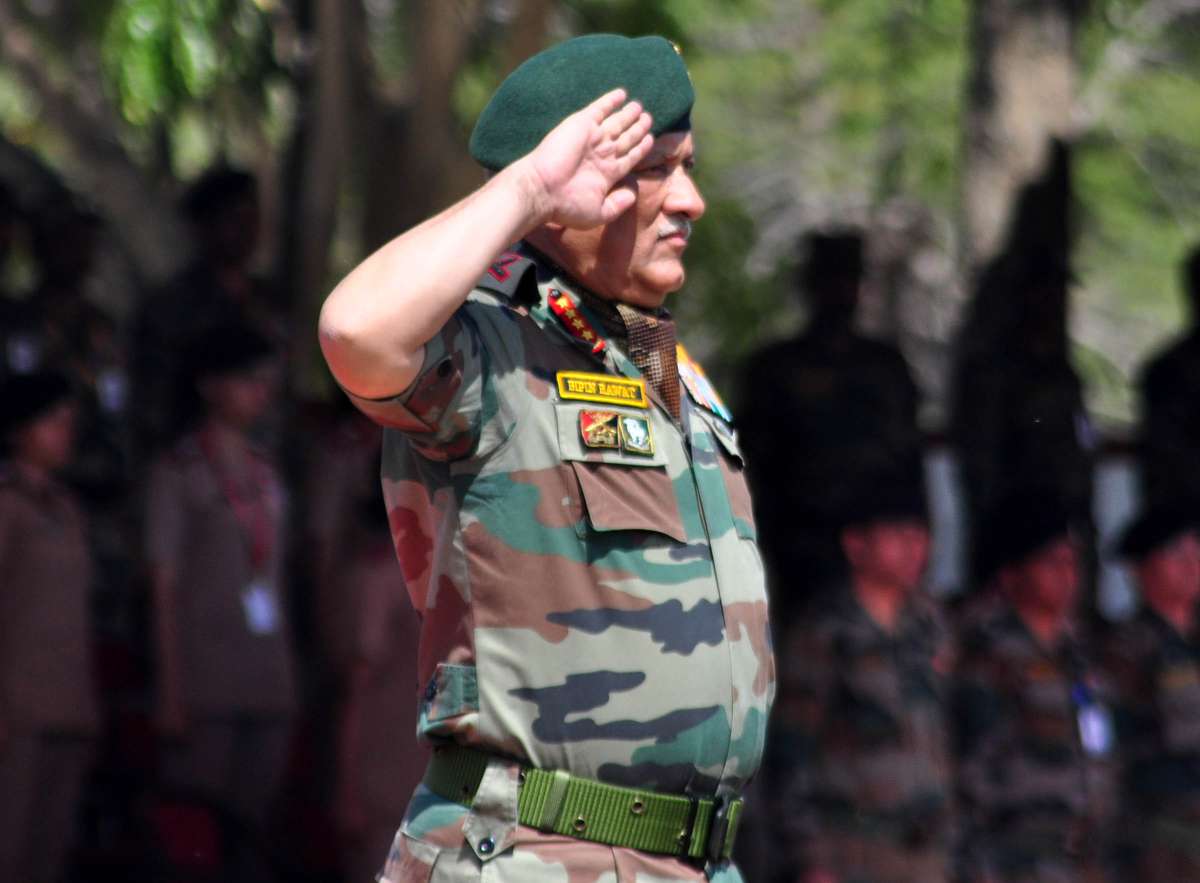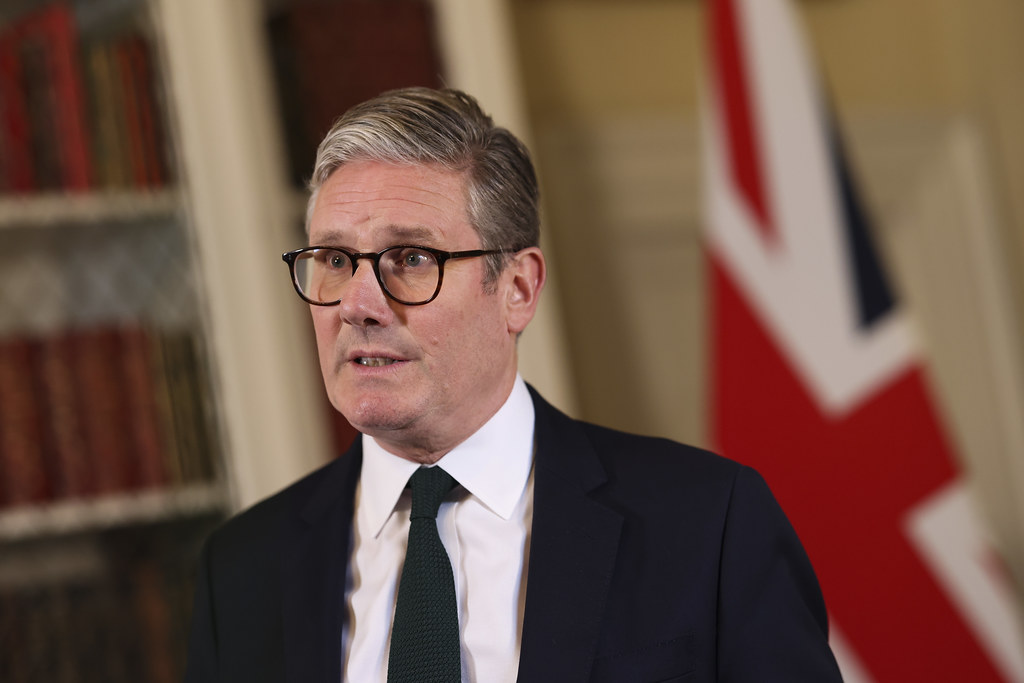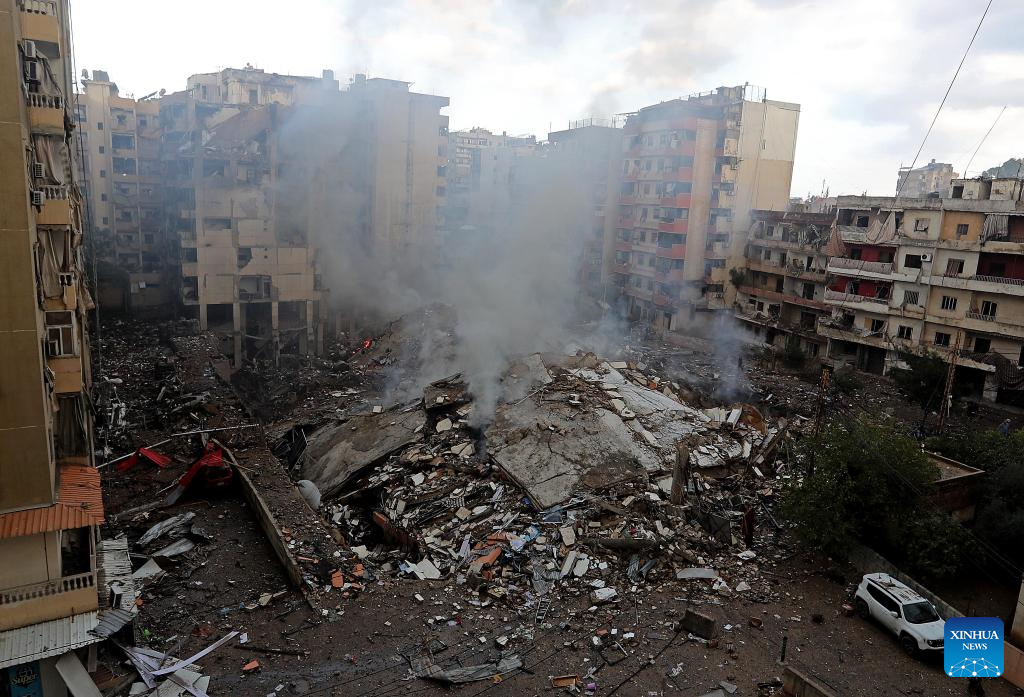In response to Gandhi’s queries, the government said it was looking into all possible angles and it was an evolving situation…reports Asian Lite News
At the All-Party meeting held on Tuesday to address the unfolding situation in Bangladesh, Congress MP and Leader of the Opposition in the Lok Sabha, Rahul Gandhi, expressed serious concerns about the recent developments in the country.
During the meeting, External Affairs Minister (EAM) S. Jaishankar briefed the leaders on the current unrest in Bangladesh. After the briefing, Gandhi expressed his support for the measures taken by the Indian government, emphasising that these actions were in the national interest.
However, Gandhi also raised several apprehensions, particularly regarding potential foreign involvement in the situation. He questioned whether external forces, specifically China and Pakistan, might be playing a role in destabilizing Bangladesh, hinting at possible interference that could have far-reaching implications for regional stability.
In response to Gandhi’s queries, the government said it was looking into all possible angles and it was an evolving situation.
The government also provided an update on the safety of Indian nationals in Bangladesh, assuring the leaders that the situation is under control.
“Around 12,000 Indians are safe, and embassy officials are secure in Bangladesh,” the government informed. Additionally, it was noted that around 8,000 Indians have already returned to the country, with further measures being taken to ensure the safety of those still in Bangladesh.
Gandhi also drew attention to the plight of minorities in Bangladesh, citing reports of attacks on their properties. He stressed that the safety and status of minorities in the neighbouring country are of significant concern to India, given the deep cultural and historical ties between the two nations.
RJD members also raised the issue of the safety of minorities, and Indians and increasing adequate security at the border to avoid any untoward incident.
YSRCP member Vijaysai Reddy has expressed full support for the government, emphasising that it is in the best interest of the nation.
During the meeting leaders from various political parties engaged in a robust discussion on how to navigate the delicate situation in Bangladesh while safeguarding India’s national interests.
Several party members in attendance inquired about the whereabouts of Bangladesh Prime Minister Sheikh Hasina. The government responded, stating, “Sheikh Hasina is in India, and the NSA (National Security Advisor) and his team are taking care of her,” according to sources.
Additionally, sources indicated that the government stressed the impact of the current political situation in Bangladesh on India-Bangladesh relations and trade, noting significant setbacks. In response to the ongoing unrest, the government has instructed all relevant authorities, including the Border Security Force (BSF) especially in West Bengal, to take necessary actions to address the situation.
Bangladesh is facing a fluid political situation after Sheikh Hasina resigned from her post in the wake of mounting protests. The protests, majorly led by students demanding an end to a quota system for government jobs, took the shape of anti-government protests.
In Dhaka, the leaders of the Anti-Discrimination Student Movement have proposed an interim government led by Nobel Laureate Muhammad Yunus, in a bid to address Bangladesh’s ongoing challenges.
Sheikh Hasina arrived in India on Monday evening after tendering her resignation. It is not clear if Sheikh Hasina will continue to stay in Delhi or move to another location later. (ANI)
‘Estimated 19,000 Indian nationals in Bangladesh’
Amid political unrest in Bangladesh, External Affairs Minister S. Jaishankar stated on Tuesday that there are an estimated 19,000 Indian nationals in the country, including about 9,000 students. He assured the nation that the government is maintaining close contact with the Indian community in Dhaka.
Jaishankar informed the Lok Sabha that the bulk of the students returned to India in July.
“We are in close and continuous touch with the Indian community in Bangladesh through our diplomatic missions. There are an estimated 19,000 Indian nationals there of which about 9000 are students. The bulk of the students returned in July,” he said.
He also said that Bangladesh’s former Prime Minister Sheikh Hasina requested approval from India to come at very short notice and she arrived on the evening of Monday.
“On August 5, demonstrators converged in Dhaka despite the curfew. Our understanding is that after a meeting with leaders of the security establishment, Prime Minister Sheikh Hasina apparently made the decision to resign. At very short notice, she requested approval to come for the moment to India. We simultaneously received a request for flight clearance from Bangladesh authorities. She arrived yesterday evening in Delhi,” he said.
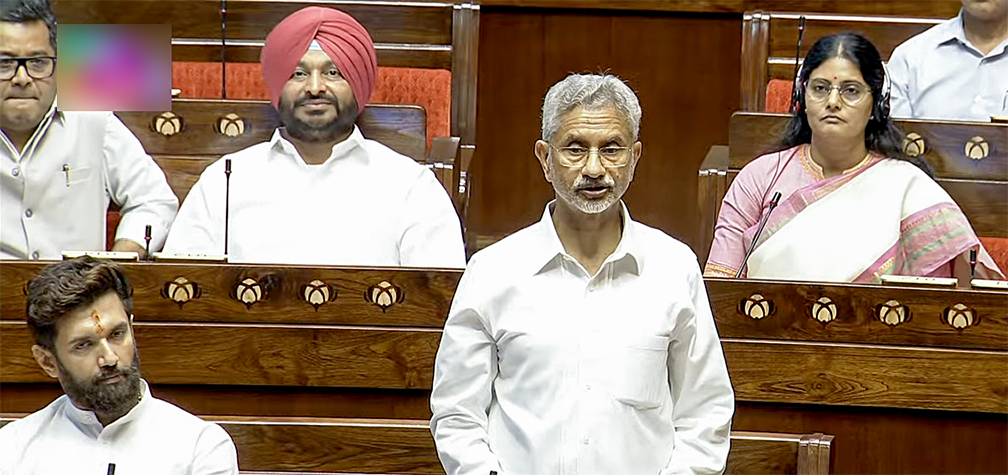
The External Affairs Minister also mentioned that the government is monitoring the situation with regard to the minorities living in Bangladesh.
Jaishankar noted that ties between India and Bangladesh are exceptionally close.
“Since the election in January 2024, there has been considerable tensions, deep divides and growing polarization in Bangladesh politics and “this underlying foundation aggravated a student agitation that started in June this year.”
“There was growing violence including attacks on public buildings and violence continued in July. We counselled restraint and urged the situation be resolved by dialogue, Jaishankar said in his statement in Rajya Sabha.
He said that the growing violence included attacks on public buildings and infrastructure, as well as traffic and rail obstructions.
“Throughout this period, we repeatedly counselled restraint and urged that the situation be defused through dialogue. Similar urgings were made to various political forces with whom we were in touch,” Jaishankar said.
Despite the Supreme Court judgement on July 21, there was no letup in protests, the Union minister said.
“Various decisions and actions taken thereafter only exacerbated the situation. The agitation at this stage coalesced around a one-point agenda, that is that the Prime Minister Sheikh Hasina should step down,” Jaishankar said.
On August 4 the situation in the neighbouring country turned serious, Jaishankar informed the Lok Sabha.
“Attacks on police, including police stations and government installations, intensified even as overall levels of violence greatly escalated. Properties of individuals associated with the regime were torched across the country. What was particularly worrying was that minorities, their businesses and temples also came under attack at multiple locations. The full extent of this is still not clear,” Jaishankar said.
The EAM informed the House that the situation in Bangladesh “is still evolving.”
“The Army Chief, General Waker-uz-Zaman, addressed the nation on 5th August. He spoke about assuming responsibility and constituting an interim government,” the foreign minister said.
He said that in addition to the High Commission in Dhaka, India’s diplomatic presence in Bangladesh included the Assistant High Commissions in Chittagong, Rajshahi, Khulna and Sylhet.
“It is our expectation that the host government will provide the required security protection for these establishments. We look forward to their normal functioning once the situation stabilizes,” Jaishankar said.”
ALSO READ-Sitharaman hits back at Rahul over “budget ka halwa” jibe
